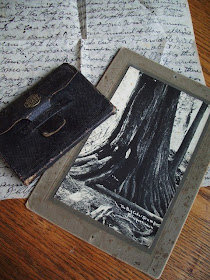 You'd never expect ticket prices for a popular annual event to go DOWN by almost half, but that's the case in Tacoma. It's time again for the Sister Cities International Film Festival at the Blue Mouse Theater in the Proctor District. It begins on Thursday February 4 and continues each Thursday through April 8. For years the festival has meant a special night at the movies. It always offered a different foreign film each week, live entertainment and food representing the countries of each of Tacoma's many sister cities around the world. Tickets were $18 per film, and worth it. Now the price is a mere $10 per film, or $90 for all ten. That's a bargain on top of a bargain. So what changed? Not much.
You'd never expect ticket prices for a popular annual event to go DOWN by almost half, but that's the case in Tacoma. It's time again for the Sister Cities International Film Festival at the Blue Mouse Theater in the Proctor District. It begins on Thursday February 4 and continues each Thursday through April 8. For years the festival has meant a special night at the movies. It always offered a different foreign film each week, live entertainment and food representing the countries of each of Tacoma's many sister cities around the world. Tickets were $18 per film, and worth it. Now the price is a mere $10 per film, or $90 for all ten. That's a bargain on top of a bargain. So what changed? Not much."This year we're not doing the food," said Bill Evans, owner of the Pacific Northwest Shop and a strong supporter of the festival. It sounds like the organizers are right on track. The food was nice to have, but in my opinion only a small, and by no means essential, part of this attractive package. The idea was to preserve the integrity of the festival's film offerings, continue the live onstage entertainment that accompanies each showing, and make the price more affordable in our current economy.
Even if you don't get a taste of the food, how often do you get a taste of what's happening in film making in countries like Japan, South Africa, Israel, Taiwan, Russia, Cuba, South Korea, Norway, and the Philippines? Add to that the live performances from different cultures and you have an enlightening and entertaining event. Remember, we're all part of the big human family, so get to know Tacoma's "sisters."
I'm proud that Tacoma has this great event, thanks to major sponsors like the City of Tacoma, the Tacoma Arts Commission, Sister Cities International, the Port of Tacoma, and the Blue Mouse Theater, as well as generous individuals who recognize its value to our community and the entire region. I can't wait to attend it again and encourage all of you to treat yourselves to something different and delightful. And if you don't live here, it's worth the trip.
Tickets can easily be purchased online by going to the Sister Cities International Film Festival website. There you can learn all the details, see the schedule, read a synopsis of each film, and order individually by clicking on the link under each title. But don't forget that if you buy the season ticket package, one is free. You can also stop in at the Blue Mouse Theater on Proctor Street between 26th and 27th on N. Proctor, or the Pacific Northwest Shop , on the corner of 27th and N. Proctor, to buy your tickets. And if you hurry, you can get in on even more bargains during Bill's annual sale.
See you at the movies.









